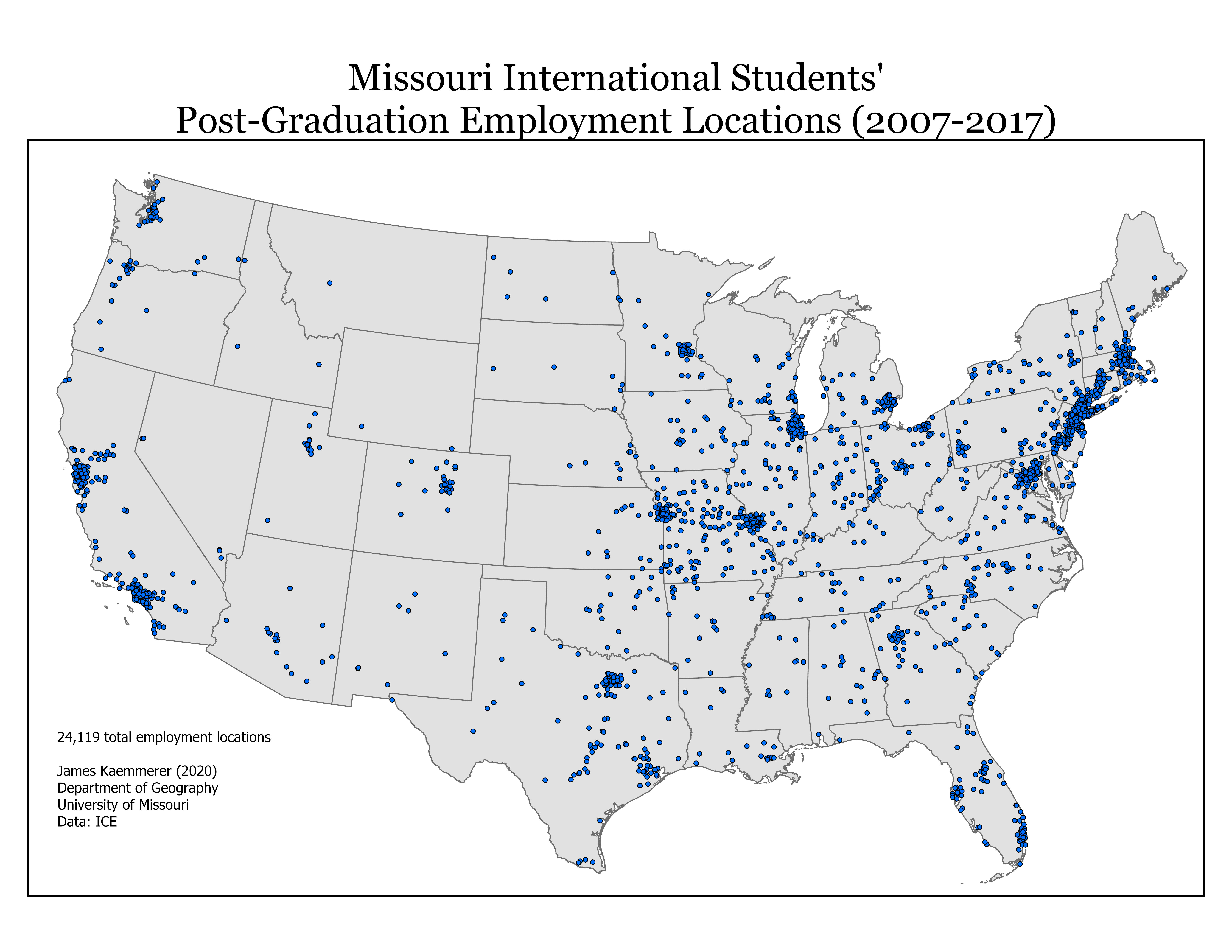James Kaemmerer will graduate May 2020 with a master’s in geography. His thesis project, which was defended in mid-April in front of peers and faculty via Zoom due to campus closures, was to analyze the geography of employment for international students. Here’s a short Q&A about his thesis and research.
Geography: What was your thesis project?
Kaemmerer: Officially, my thesis is entitled “OPT and the Geography of Employment: Understanding the Post-Graduation Work Mobilities of Missouri’s International Students.”
Geography: How did you go about conducting research?
Kaemmerer: The actual research started the first week of the first semester: I had submitted a Freedom of Information Act (FOIA) request to the Department of Homeland Security and it took a couple months for the data to arrive (on a CD in the mail). The second part of my research, the survey, began soon after. I needed to get the survey into the field by the beginning of February, so it was a bit of a race to do the IRB applications, learn how to make a quality academic survey, and invite schools to participate. All the front-end work meant that most of the “research” was done by the end of the summer.
Geography: What got you interested in your thesis project?
Kaemmerer: In a previous life, I was both an international student and an international student advisor. So, I was already involved in the international student-worker experience. I also read the book The New Geography of Jobs in my first semester, which had a big impact on me. I wanted to learn more about how and why some areas succeed economically while others struggle — and what can be done about it.
Geography: What did you learn from it?
Kaemmerer: Lots. I really came to appreciate how much potential Columbia has as a community and economy.
Geography: What’s the one take-away from the project you will always remember?
Kaemmerer: It was a hell of a lot of work.
Geography: What was the outcome?
Kaemmerer: A degree, hopefully. And illumination.
Geography: How did your thesis defense go?
Kaemmerer: No one cried, or booed, or heckled. Then again, no one slow-clapped into a standing ovation either. But for being the first Zoom defense in the Coronavirus Era, I think it was successful. And the (virtual) attendance of the faculty and my fellow classmates was a lovely gesture of support.
Geography: Any pointers for others defending their thesis projects?
Kaemmerer: It’s futile to try to make a 140-page thesis fit into a 25-minute PowerPoint presentation. So instead just play the hits.
Geography: Would you do it all over again?
Kaemmerer: Of course. And with this new economy, I might have to.
Geography: Anything else?
Kaemmerer: These past two years have proven to be among the most intellectually fulfilling times of my life. For that I am forever grateful to the university, the geography department, and my fellow classmates. Thank you.
